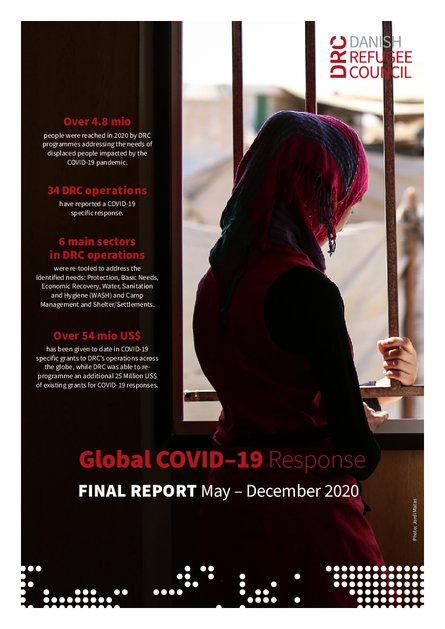
While refugees and displaced people face circumstances that leave them vulnerable to initial health risks related to COVID-19, data showed how its secondary impacts was a particularly hard blow to this population. Data from Jordan, Iraq, Lebanon, Niger, and Nigeria shows that refugee/IDP households were more prone to losing their employment opportunities, had fewer savings, and were at higher risk of eviction compared to host communities. The impact of COVID-19 on livelihoods is nothing less than disastrous, as access to employment and thereby ability to pay rent and buy food severely decreased. In Jordan, Lebanon, Iraq and Somalia, survey data from early in the crisis showed a drop of more than 50 percentage points among refugees and displaced persons having a member of the family employed.
The report looks at DRC’s response in the context of its global appeal for a total of USD 75 million to address the impact of COVID-19, launched in April 2020. Providing both data and analysis the report offers a complete overview of DRC’s COVID-19 response during the 2020 global appeal including further insights into how DRC’s response evolved during the pandemic and lessons learned from our crisis response.
